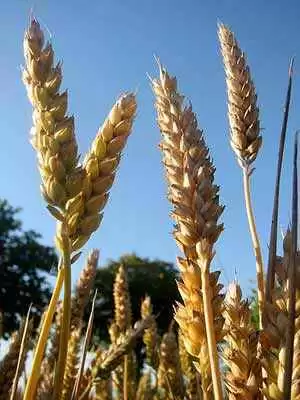Celiac.com 12/19/2012 - Can scientists create gluten-free wheat strains that are safe for people with celiac disease, and suitable for making bread? According to a team of researchers writing in the journal PNAS, the answer is 'yes.'
 Gluten is a complex mix of proteins stored in kernels of wheat, barley and rye. Some, but not all, of these proteins trigger the immune reactions seen in celiac disease and gluten sensitivity.
Gluten is a complex mix of proteins stored in kernels of wheat, barley and rye. Some, but not all, of these proteins trigger the immune reactions seen in celiac disease and gluten sensitivity.
Celiac.com Sponsor (A12):
Scientists have already experimented with another method that involves sifting through various kinds of wheat and barley in search of types that contain little or no offensive gluten proteins in their grains.
So far, researchers have found wheat varieties that lack some of the important allergenic proteins, but they have yet to find a variety that is completely safe for people with celiac disease.
That fact led the research team led by Shanshan Wen of Washington State University in Pullman and colleagues, to try a new approach that focused on a key enzyme that helps to trigger a group of genes that produce the most reactive gluten proteins.
To do this, they used a genetic engineering trick that eliminated the key enzyme altogether. The resulting seeds wheat kernels showed sharply lower levels of these reactive gluten proteins.
The research team predicts that, with more more tinkering, they will be able to create a line of wheat that completely eliminates the problem proteins, and keeps the non-problem proteins in the wheat.
According to their write-up, they feel that they have good odds of creating wheat that is safe for people with celiac disease, and suitable for producing good bread and baked goods.
If successful, they will then begin testing the results in cell cultures, mice and gluten-sensitive apes.
Source:
- Open Original Shared Link






Recommended Comments